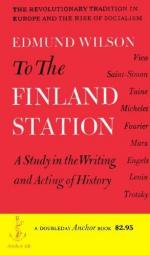
|
| Name: _________________________ | Period: ___________________ |
This test consists of 15 multiple choice questions and 5 short answer questions.
Multiple Choice Questions
1. What was Trotsky's role in the early years of the Russian Revolution?
(a) He spurred the revolutionaries to excesses.
(b) He was a vocal critic of the Revolution.
(c) He plotted with the Tsar's loyalists against the regime.
(d) He helped implement the regime's policies.
2. Describe Lenin's relationship with his wife?
(a) He kept her apart from his political activities.
(b) She worked at his side to organize the workers.
(c) She helped build his name as a leader in any communist revolution.
(d) She managed the distribution of his ideas.
3. Where did the "dialectic" in dialectic materialism come from?
(a) Diderot.
(b) Hegel.
(c) Rousseau.
(d) Emerson.
4. What affect did Lassalle have on the relationship between Marx and Engels?
(a) He played them against each other.
(b) He strained it.
(c) He clarified their differences.
(d) He brought them closer together.
5. Where does stability come from in dialectic materialism?
(a) The fusion of thesis and antithesis.
(b) The consensus among involved parties.
(c) The emergence of a new power.
(d) The seizure of power by a faction that can hold it.
6. What was Marx's relationship with Engels after the 1850s?
(a) They quarreled and split.
(b) Engels sent Marx money because he was broke.
(c) They started a commune with the proceeds of their shared writing.
(d) Marx turned Engels' ideas into books.
7. Where did Lenin and Trotsky first meet?
(a) In Munich.
(b) In London.
(c) In Berlin.
(d) In Moscow.
8. How does a dialectical system progress?
(a) A dominant culture spawns emergent cultures that become dominant in turn.
(b) Systems remain vital by bringing opposing views into dialogue.
(c) Institutions grow by repressing or appropriating internal movements.
(d) The thesis is negated by the antithesis, and the conflict produces a new synthesis.
9. According to Marx and Engels, from what did the bourgeoisie and the proletariat originate?
(a) From the end of feudalism and from modern society, respectively.
(b) From inheritance and poverty, respectively.
(c) From strength and weakness, respectively.
(d) From modern warfare and from industrial efficiencies, respectively.
10. When did Trotsky first study Marx and Lenin?
(a) In high school.
(b) In Siberia.
(c) At the university.
(d) In France.
11. According to Marx, what kind of labor do machines contain?
(a) Frozen labor.
(b) Divine labor.
(c) Eternally renewed labor.
(d) Magnified labor.
12. According to Edmund Wilson's account, why didn't Marx and Engels consider Russia as a site of the first revolution?
(a) Russia had industrialized very quickly, bringing prosperity to the masses.
(b) Russia had already transitioned from feudalism to capitalism without a war.
(c) Russia did not have fiery leaders to spark a revolution.
(d) Russia's economy was agricultural.
13. When did Trotsky return to Russia after the 1905 revolt?
(a) 1921.
(b) 1927.
(c) 1917.
(d) 1912.
14. What does Marx say a society based on class prevents?
(a) A recognition of universal rights.
(b) Solidarity between workers from different nations.
(c) Abuses of workers' rights.
(d) Class warfare.
15. How do Marx and Engels describe the bourgeoisie?
(a) As the thesis.
(b) As the most recent usurpers.
(c) As an eternal principle of society.
(d) As the dominant institution.
Short Answer Questions
1. According to Marxist economics, what kind of value does the worker create?
2. What was Engels converted to in Cologne?
3. What did Marx and Engels combine with the goals of the utopian socialists?
4. According to the author, what does the "dialectic" means in "dialectic materialism"?
5. How did Lenin differ from the German Marxists?
|
This section contains 597 words (approx. 2 pages at 300 words per page) |

|




